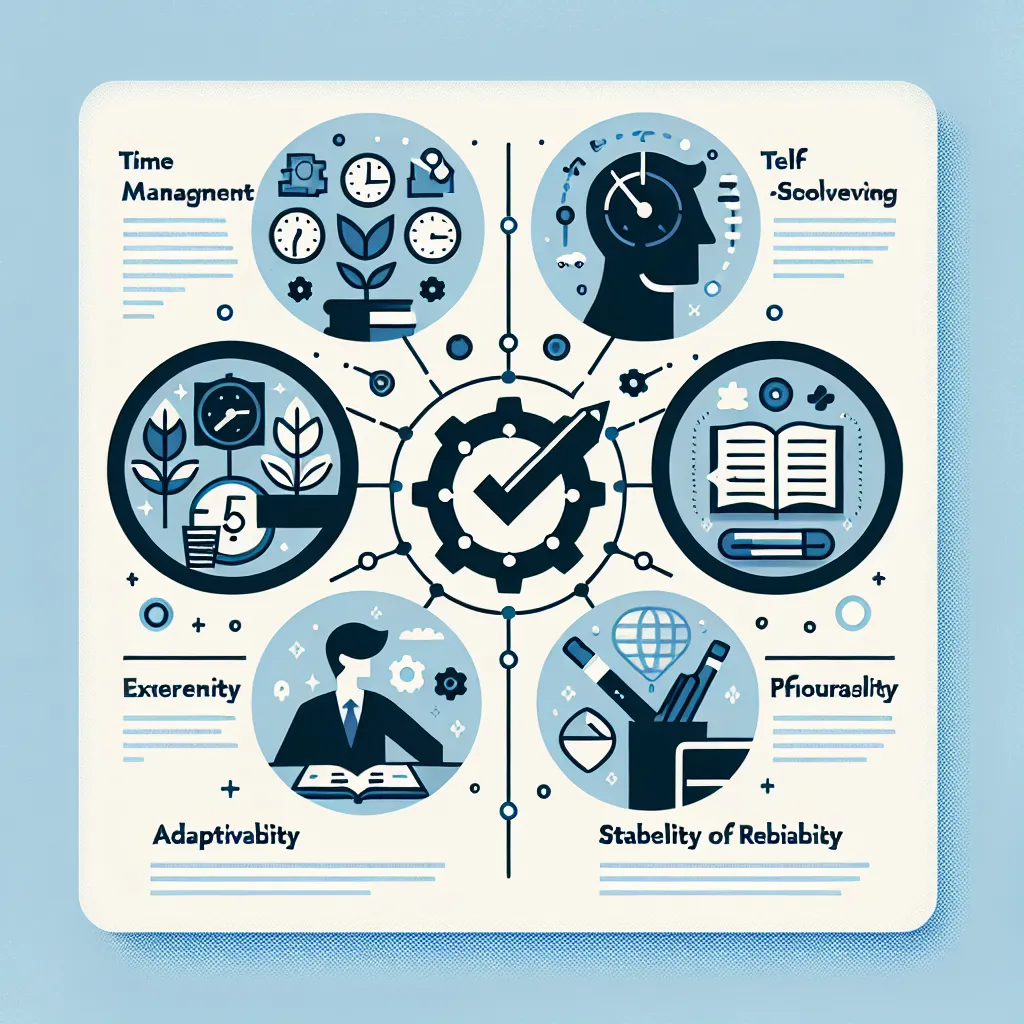In today’s rapidly evolving work environment, the ability to adapt to change is a crucial skill that employers highly value. When interviewing for a job, you may be asked to demonstrate this ability. This article will guide you through effective ways to explain your adaptability in English during a job interview.
Understanding Adaptability in the Workplace
Adaptability refers to the ability to adjust to new conditions, environments, or situations. In a professional context, it means being flexible and responsive to changes in the workplace, whether they involve new technologies, processes, team structures, or market conditions.
Why Employers Value Adaptability
Employers prioritize adaptability for several reasons:
- Rapid technological advancements
- Changing market conditions
- Evolving business strategies
- Need for innovation and continuous improvement
- Global economic fluctuations
Understanding these factors will help you frame your responses more effectively during an interview.
 Adaptability in the workplace
Adaptability in the workplace
Demonstrating Your Adaptability in an Interview
When asked about your ability to adapt to change, consider the following strategies:
1. Provide Specific Examples
Use the STAR method (Situation, Task, Action, Result) to structure your response:
- Situation: Describe a scenario where you faced a significant change.
- Task: Explain what was required of you.
- Action: Detail the steps you took to adapt.
- Result: Share the positive outcome of your actions.
Example:
“In my previous role, our company switched to a new project management software (Situation). I was tasked with learning the new system and training my team (Task). I quickly familiarized myself with the software through online tutorials and reached out to the IT department for additional support. I then created a user guide and conducted workshops for my colleagues (Action). As a result, our team’s productivity increased by 20% within a month of implementation (Result).”
2. Highlight Your Learning Agility
Emphasize your willingness and ability to learn new skills quickly:
“I’m always eager to learn new things. When our company introduced a new CRM system, I volunteered to be part of the pilot group. I quickly learned the system and became a go-to resource for my colleagues, helping them transition smoothly.”
3. Discuss Your Problem-Solving Skills
Adaptability often involves finding creative solutions to new challenges:
“When faced with unexpected changes, I approach them as problems to be solved. For instance, when a key team member left unexpectedly, I reorganized our workflow to distribute tasks more efficiently, ensuring we met our project deadline.”
4. Emphasize Your Positive Attitude Towards Change
Express enthusiasm for change and growth:
“I view change as an opportunity for growth and innovation. When our company decided to expand into a new market, I was excited to research and propose strategies for this new venture.”
5. Showcase Your Flexibility
Provide examples of how you’ve adapted to different work styles or environments:
“I’ve worked in various team structures, from hierarchical to flat organizations. In each setting, I’ve adjusted my communication and work style to align with the company culture and achieve optimal results.”
Common Interview Questions About Adaptability
Here are some questions you might encounter, along with sample answers:
- “Tell me about a time when you had to adapt to a significant change at work.”
Answer: “In my previous job, our company merged with a competitor, resulting in significant changes to our team structure and processes. I took the initiative to learn about the new company culture and systems. I also volunteered to be part of the integration committee, where I helped create new workflows that combined the best practices from both companies. This proactive approach helped smooth the transition for my team and improved overall efficiency.”
- “How do you handle unexpected obstacles in your work?”
Answer: “I approach unexpected obstacles with a problem-solving mindset. For example, when a crucial supplier suddenly went out of business, I quickly researched alternatives, negotiated new contracts, and implemented a backup supplier system to prevent future disruptions. This experience taught me the importance of contingency planning and quick decision-making.”
- “Describe a situation where you had to learn a new skill or technology quickly.”
Answer: “When our company decided to switch to cloud-based services, I volunteered to lead the transition for our department. I immersed myself in online courses and webinars to quickly gain expertise. Within a month, I was able to train my colleagues and troubleshoot common issues, ensuring a smooth transition with minimal downtime.”
- “How do you stay current with industry trends and changes?”
Answer: “I’m committed to continuous learning. I subscribe to industry newsletters, follow thought leaders on social media, and regularly attend webinars and conferences. I also participate in online forums where professionals share insights and discuss emerging trends. This proactive approach helps me anticipate changes and adapt more easily when they occur.”
- “Can you give an example of how you’ve helped others adapt to change?”
Answer: “When our company introduced a new flexible work policy, some team members struggled with the transition. I created a guide on effective remote work practices and organized virtual coffee breaks to maintain team cohesion. I also set up a buddy system where more adaptable team members supported those who were struggling. These initiatives helped improve overall team morale and productivity during the transition.”
 Explaining adaptability in an interview
Explaining adaptability in an interview
Common Mistakes to Avoid
When discussing your adaptability, be careful to avoid these common pitfalls:
- Being too vague: Always provide specific examples to illustrate your points.
- Focusing only on big changes: Adaptability is also about handling small, everyday changes effectively.
- Neglecting to mention learning from challenges: Discuss how you’ve grown from difficult situations.
- Overlooking the importance of helping others adapt: Demonstrating leadership in change management is valuable.
- Forgetting to link adaptability to business outcomes: Show how your flexibility benefited your employer.
Follow-up Questions and Suggested Answers
- “How do you maintain productivity during periods of significant change?”
Suggested answer: “I find that maintaining a structured approach helps me stay productive during changes. I prioritize tasks, set clear goals, and break larger projects into manageable steps. I also ensure open communication with my team and superiors to clarify expectations and address any challenges promptly.”
- “Can you describe a time when you had to adapt your communication style?”
Suggested answer: “When I started managing a multicultural team, I realized I needed to adjust my communication style. I became more aware of cultural differences, used clearer language, and incorporated visual aids in presentations. This adaptation led to improved team understanding and collaboration.”
- “How do you deal with resistance to change from colleagues?”
Suggested answer: “I believe in addressing resistance through empathy and clear communication. I listen to concerns, explain the benefits of the change, and involve team members in the process. For instance, when implementing a new reporting system, I organized workshops where resistant colleagues could voice their concerns and contribute ideas, which increased buy-in and eased the transition.”
- “What strategies do you use to stay calm and focused during uncertain times?”
Suggested answer: “I maintain my focus by breaking down complex situations into manageable parts. I also practice mindfulness techniques and ensure I maintain a healthy work-life balance. These strategies help me stay calm and make rational decisions even in uncertain circumstances.”
- “How do you balance adapting to change with maintaining consistency in your work?”
Suggested answer: “I believe in finding a balance between embracing change and maintaining core principles. While I’m open to new methods and ideas, I always ensure that changes align with the company’s values and long-term goals. This approach allows me to adapt effectively while maintaining consistency in quality and direction.”
Conclusion
Explaining your ability to adapt to change in English requires a combination of specific examples, a positive attitude, and a demonstration of your problem-solving skills. By preparing thoughtful responses to common questions and avoiding typical mistakes, you can effectively showcase your adaptability to potential employers.
Remember, adaptability is not just about responding to change, but also about anticipating it and thriving in dynamic environments. As you prepare for your interview, reflect on your experiences and be ready to articulate how you’ve successfully navigated changes in your career.
For more interview tips, check out our articles on how to discuss your leadership skills in an interview and how to answer “How do you prioritize your work?” in English.




